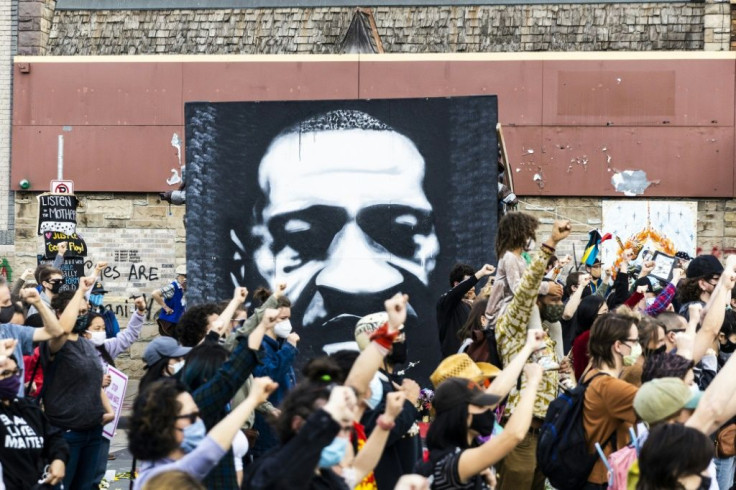Derek Chauvin Murder Trial Reaches Guilty Verdict In Death Of George Floyd
Derek Chauvin, the Minneapolis police officer who kneeled on the neck of 49-year-old Black man George Floyd, igniting a wave of historic protests, was found guilty Tuesday afternoon of second-degree unintentional murder, third-degree murder and second-degree manslaughter.
Chauvin, 45, did not change his expression as the judge read the verdict. He will be sentenced in eight weeks.
Guilty. A roar erupts across the entire city. People cry, laugh, hold each other. pic.twitter.com/z9nGwdW887
— Grace Morgan (@gravemorgan) April 20, 2021
The trial began on March 8 and drew national media attention. Video had shown Chauvin kneeling on Floyd's neck for about nine minutes on May 20, sparking protests in the U.S. and other countries.
Floyd’s protests of “I can’t breathe” in the summer of 2020 became a rallying cry for demonstrators outraged by police brutality.
Floyd was originally stopped for allegedly using a forged $20 bill.
Chauvin declined to testify during the trial. Defense lawyers noted the presence of substances in Floyd’s system, suggesting drugs and heart disease could have contributed to his death. Prosecuting witnesses, however, maintained that police restraint was to blame.
"Mr. Floyd's use of fentanyl did not cause the subdual or neck restraint," said Dr. Andrew Baker, Hennepin County’s chief medical examiner. "His heart disease did not cause the subdual or the neck restraint."

The verdict comes amid heightened tension over the killing of 20-year-old Black man Daunte Wright on April 11, in the Minneapolis suburb of Brooklyn Center. Police officer Kim Potter resigned and faces manslaughter charges.
Rep. Maxine Waters, D-Calif., spoke out at a weekend protest, saying that Chauvin was “guilty, guilty, guilty” and urging protesters to show their outrage if he’s acquitted.
"We gotta stay on the street. And we've got to get more active. We've got to get more confrontational. They've got to know that we mean business," Waters said.
While she’s clarified that she does not advocate for violence, Republicans in the house still introduced a measure to censure her. Some Chauvin detractors also opposed her statements, worried that fear of riots could be used to argue the verdict wasn’t unbiased and launch an appeal.
Rep. Maxine Waters (D-CA) to BLM protesters in Brooklyn Center, MN:
— Bree A Dail (@breeadail) April 18, 2021
“[Protestors] got to stay on the street and get more active, more confrontational. They’ve got to know that we mean business.” pic.twitter.com/GLIPoLwZnd
© Copyright IBTimes 2025. All rights reserved.





















